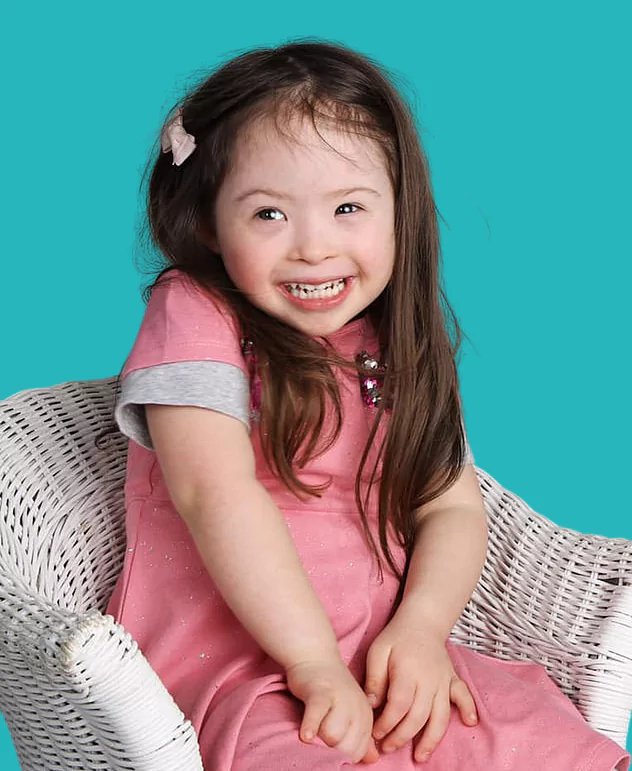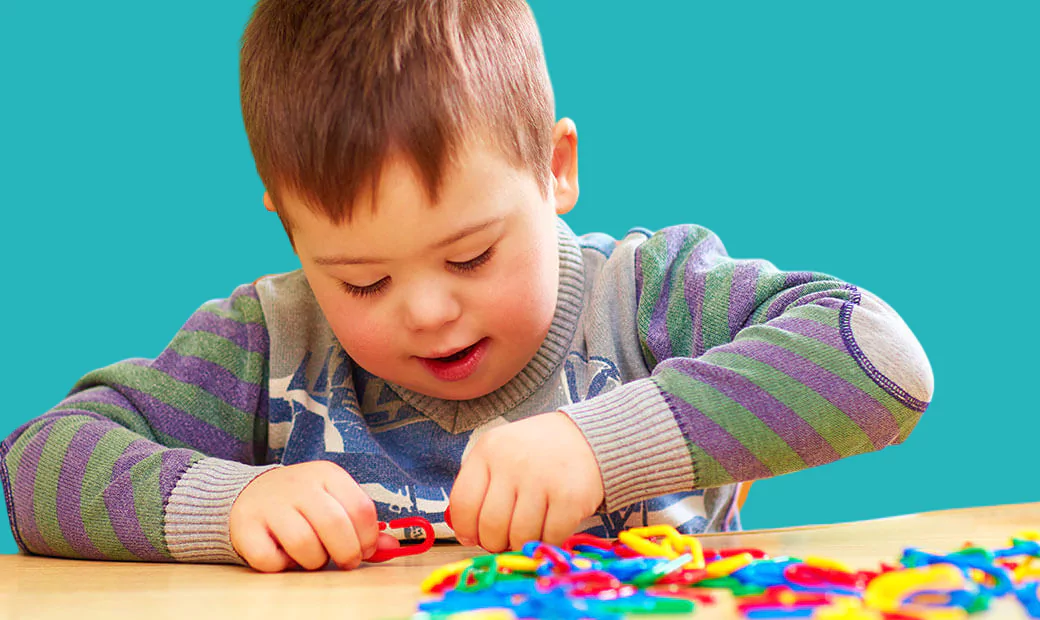Down syndrome is one of the most common genetic disorders affecting children. It affects mental and physical development, but it doesn't prevent them from enjoying a life filled with love and care.
What is Down syndrome in children?
It is a genetic condition resulting from the presence of an extra copy of chromosome 21, causing delayed physical and mental development in the child.
Causes of Down syndrome
The condition is caused by a genetic defect during cell division. The most prominent causes include:
- The presence of an extra copy of chromosome 21.
- Translocation of part of chromosome 21 to another chromosome.
- Errors in cell division after fertilization.
Symptoms of Down syndrome in children

The child exhibits a set of distinctive signs, such as:
- Distinctive facial features.
- Weak muscles.
- Short stature.
- Delayed speech and motor skills.
- Higher susceptibility to certain health problems.
Health Complications of Down Syndrome
The syndrome may be accompanied by some health problems, such as:
- Congenital heart defects.
- Weakened immunity.
- Hearing and vision problems.
- Thyroid disorders.
Diagnosis of Down Syndrome in Children
Diagnosis can be made prenatally or postnatally, and depends on:
- Blood tests during pregnancy.
- Ultrasound.
- Chromosomal analysis after birth.
How to Treat Down Syndrome in Children

There is no definitive cure, but a child's life can be improved through:
- Early intervention to develop mental and motor abilities.
- Physiotherapy to improve muscle strength.
- Speech therapy sessions to develop language skills.
- Regular medical follow-up to treat associated problems.
- Psychological and social support for the child and family.
Methods of Preventing Down Syndrome Complications
Complications can be reduced through:
- Early detection of heart disease.
- Regular follow-up with doctors of various specialties.
- Ensuring basic vaccinations.
- Providing a supportive and safe environment for the child.
Can Down syndrome be prevented?
No, it is linked to genes.
Will an affected child live a normal life?
Yes, with appropriate medical and social care.
Does the risk of having a child with Down syndrome increase with maternal age?
Yes, the older the mother, the higher the risk of developing the condition.
A summary of Down syndrome in children and how it is treated
Down syndrome is a genetic condition that cannot be cured, but early intervention and medical and psychological care can help the child cope, develop their abilities, and better integrate into society.